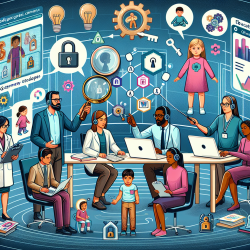The importance of gender-sensitive education in health sciences cannot be overstated. The research article titled "Evaluation of Gender Courses Offered in Accord with the Curriculum of the Faculties of Health Sciences in Turkish Universities" by Avci et al. (2021) highlights a critical gap in the inclusion of gender courses within health science curricula. This blog aims to guide speech-language pathologists (SLPs) in improving their skills by integrating gender-inclusive practices and encouraging further research in this area.
Key Findings
- Out of 183 universities, only 36 included gender courses in their health sciences curricula.
- Courses related to gender were more often elective rather than compulsory.
- Gender courses were predominantly offered in the later semesters, rather than during the initial years of study.
Why Gender-Inclusive Education Matters
Gender roles and expectations significantly impact both the provider and recipient of health services. SLPs often work with children, whose understanding of gender roles is still developing. Incorporating gender-sensitive education can:
- Promote equality and inclusivity in therapy sessions.
- Help practitioners recognize and address gender biases.
- Improve the overall quality of care provided to all children.
Implementing Gender-Inclusive Practices
Based on the research findings, here are actionable steps for SLPs:
- Advocate for Curriculum Changes: Encourage educational institutions to include mandatory gender courses in health science programs.
- Continuous Professional Development: Participate in workshops and courses focused on gender inclusivity.
- Inclusive Language: Use gender-neutral language in therapy sessions and documentation.
- Resource Utilization: Incorporate materials and resources that promote gender equality.
Encouraging Further Research
SLPs are encouraged to engage in further research to explore the impact of gender-inclusive education on therapy outcomes. Potential research areas include:
- The effect of gender-sensitive training on therapist-client interactions.
- Long-term outcomes of gender-inclusive therapy practices on children.
- Comparative studies between institutions with and without gender courses in their curricula.
In conclusion, integrating gender-sensitive education within health sciences curricula is crucial for creating equitable and effective therapy outcomes. SLPs play a pivotal role in advocating for and implementing these changes. By doing so, they can contribute to a more inclusive and supportive environment for all children.
To read the original research paper, please follow this link: Evaluation of Gender Courses Offered in Accord with the Curriculum of the Faculties of Health Sciences in Turkish Universities.










